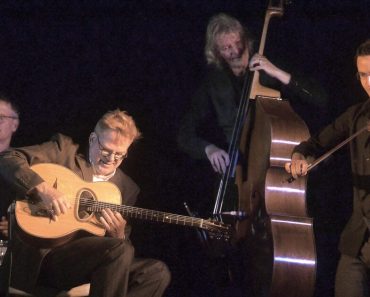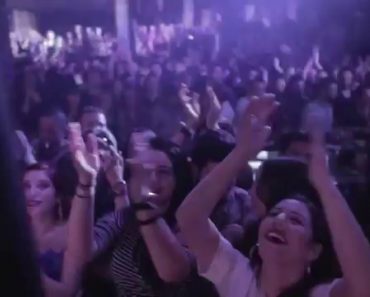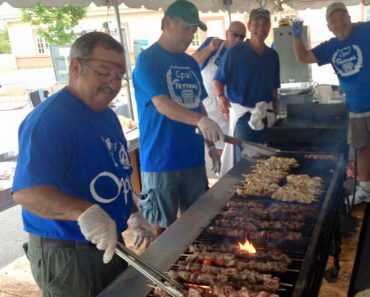At the Greek publishing house “Istos” and the sports club of Pera, in the center of Constantinople, the sound of bouzouki melodies fills the air while the lesson is in progress. Andreas Sarantidis, originally from Koufalia near Thessaloniki, teaches aspiring bouzouki enthusiasts the techniques of their beloved musical instrument.
The students are Turks of all ages, but also Greeks from the diaspora. Holding the bouzouki in their arms, they follow the technique laid out in BUZUKIST—a bouzouki method book written in both Greek and Turkish. Edited by Sarantidis himself, the book has been available throughout Turkey since 2020. It serves as a kind of “gospel” to initiate neighbors into the famed bouzouki double-picking techniques.
“Turkish people are crazy about the timbre of the bouzouki and never miss a single lesson,” says Mr. Sarantidis to the Athens-Macedonian News Agency. “After all, they have similar string instruments in their own musical culture, like the saz, the oud, and the lafta,” he explains, noting how Turkish students quickly pick up on how to play Greek bouzouki.
“They learn easily because they are disciplined, born into music, and they love and respect Greek music—just as they do all other styles. Turks also have excellent instrumentalists, and I’ve met several who passionately study Greek music and its history, with a particular fondness for rebetiko and traditional music. They even visit our islands every year to attend workshops led by top Greek virtuosos. They live the experience and return with even more enthusiasm to learn,” the Greek musician adds.

The bouzouki lessons for Turkish students are based on his book, which provides detailed instructions—also in Turkish—from the basics to the more advanced techniques. By the time students complete the curriculum, they are capable of playing the globally recognized piece “Zorba the Greek.”
Andreas Sarantidis started playing the bouzouki at a young age—he was only seven when he played for the first time and never put it down since. Music was already in his family, with his father playing the clarinet as an amateur and his uncle playing the guitar. So, as he says, the “music gene” was already in him.
As for his journey in Constantinople, it began in 2014 after completing his studies and gaining substantial experience in the field. “In 2014, they were looking for a Greek bouzouki player for the New Year’s Eve celebration in Istanbul. I got the offer and accepted it immediately—that was the beginning, I think. A few months later, in the summer of the following year, I ended up in Bodrum for the summer season, again with the same orchestra. Before the season was even over, they asked me to stay in Istanbul for the whole year. At the same time, I began collaborating with the laïko-rebetiko music group Café Aman Istanbul, led by Stelios Berberis,” the music teacher notes.
In 2016, just before the coup attempt and during a period of frequent attacks in Turkey, he began to feel insecure—especially since he didn’t yet speak the language—so he returned to Thessaloniki for the next two years. However, he kept in touch with Istanbul, initially visiting at regular intervals and later settling there permanently, when another love entered his life, even greater than the bouzouki.
“My wife, Dilek, whom I met in 2015, married in 2017, and with whom we welcomed our twin boys just two months ago, is the most important reason I now live permanently in Turkey. My family is my inspiration and driving force for everything, and I am grateful to God for this gift,” he shares.

Since 2019, his career in Turkey has flourished, including work with conservatories, state orchestras, music venues, bouzouki performances, Turkish theater, and cinema. Holding a degree in European classical music theory and a diploma in bouzouki performance, he has collaborated extensively with Greek diaspora schools in Constantinople, major figures in the Greek music scene, and well-known Turkish stand-up comedians, actors, and singers.
He participated in the theatrical play Zarifi Apartmani, which continues to be performed successfully and was awarded in 2024 with the Best Supporting Actress award in Turkey. He also appeared in the documentary film Searching for Rodaki as both musical director and lead, a work that has received five awards across Turkey, Greece, and Europe.
In his first solo musical release in Turkey, he recorded the instrumental piece Friendship with Serkan Hakki, a virtuoso clarinetist from Aleppo. In his second album, he composed a song titled Canım Avuçlarımda (“My Soul in My Hands”), with lyrics by a Turkish female artist. The song is dedicated to his father and to children who have lost their parents.
Since 2020, alongside his music career, he also serves at the offices of the Ecumenical Patriarchate of Constantinople in the Phanar district. In the near future, Andreas Sarantidis plans to re-release his book with the addition of two more bilingual versions—Turkish-English and Greek-English. At the same time, he is working on his first personal album, which will feature instrumental arrangements of his own compositions. He is also preparing for his upcoming summer concerts in both Turkey and Greece.
Ask me anything
Explore related questions







